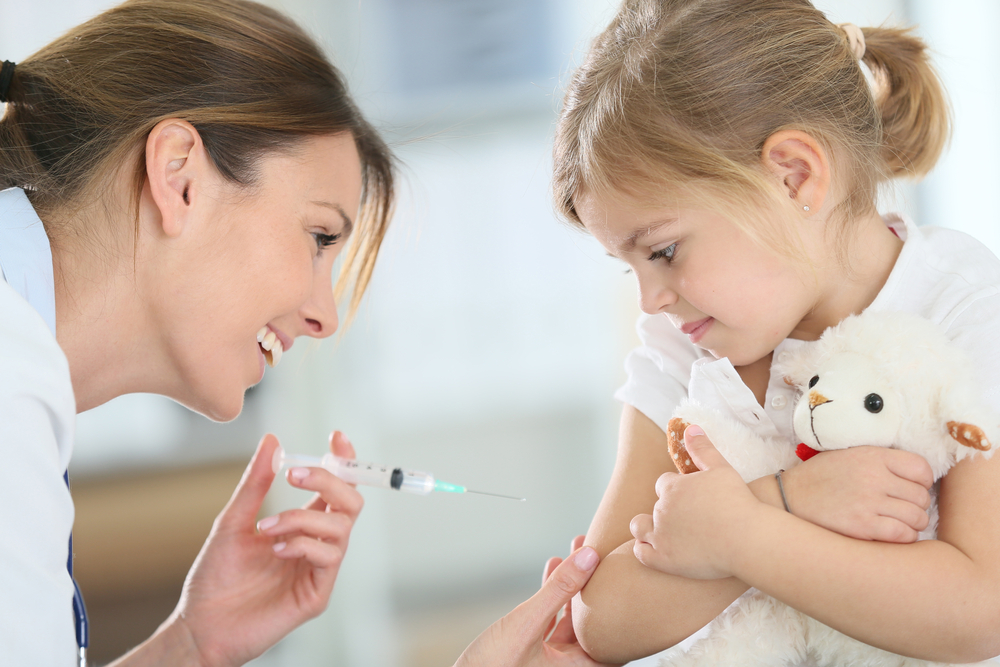DIAGNOSIS
If your child is allergic to some vaccinations, some reactions will happen immediately after they get vaccinated. Examples are weakness, high fever, and a change of mood or behavior. Seek doctor’s help for these condtions.
Some specific signs to look for include:
- Breathing problems like wheezing
- Hoarseness
- Hives
- Pale color
- Weakness
- Fast heartbeat
- Dizziness
- Swelling in the face or throat
- Fever
- Seizures
When the child is extremely crying for about 3 hours, it indicates a real problem.
In some rare cases, vaccinations can also lead to coma, long-term seizures, or permanent brain damage.
TREATMENT
Getting regular shots can benefit both the mother and child.
Try the method called the “5 S’s” immediately after your child is vaccinated to avoid so much crying. These are:
- Swaddling immediately after the shot. You also can swaddle (wrapping a baby tightly in a blanket like a “burrito”) before the shot, but leave your baby’s legs exposed for the vaccination.
- Placing him or her on the side or stomach
- Making shushing sounds in his or herear
- Swinging him or her in your arms or doing an infant swing
- Giving her the opportunity to suck (whether through breastfeeding, a bottle, or a pacifier)
5S’s are proven to reduce crying after a shot. Breastfeeding can also help distracting your baby and in calming her down.
Before the shot, gently massage the injection site to help lessen the pain. For toodlers, distracting them with toys, books or songs can be a great help. Seek advice from your child doctor if fever develops after the shot. Try positive reinforcement after getting the shot, to make it easier for your child next time.


